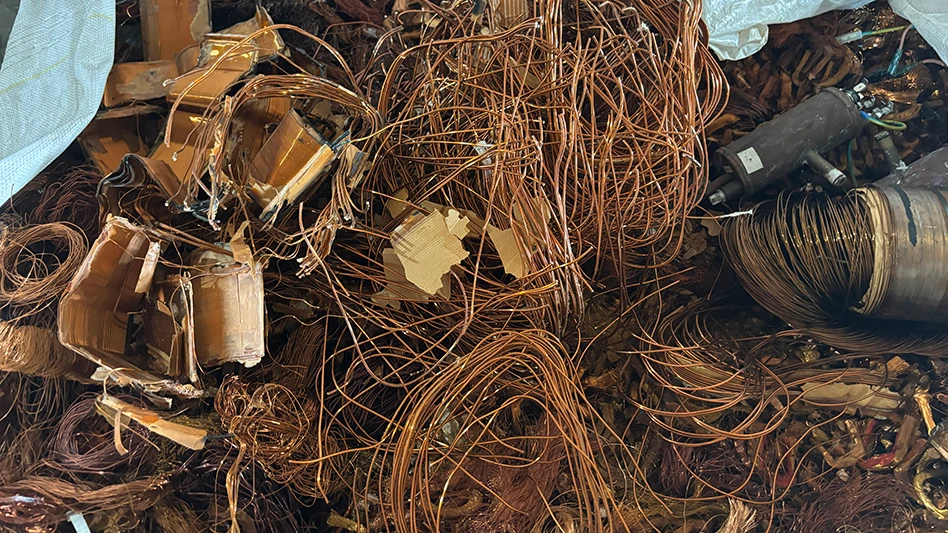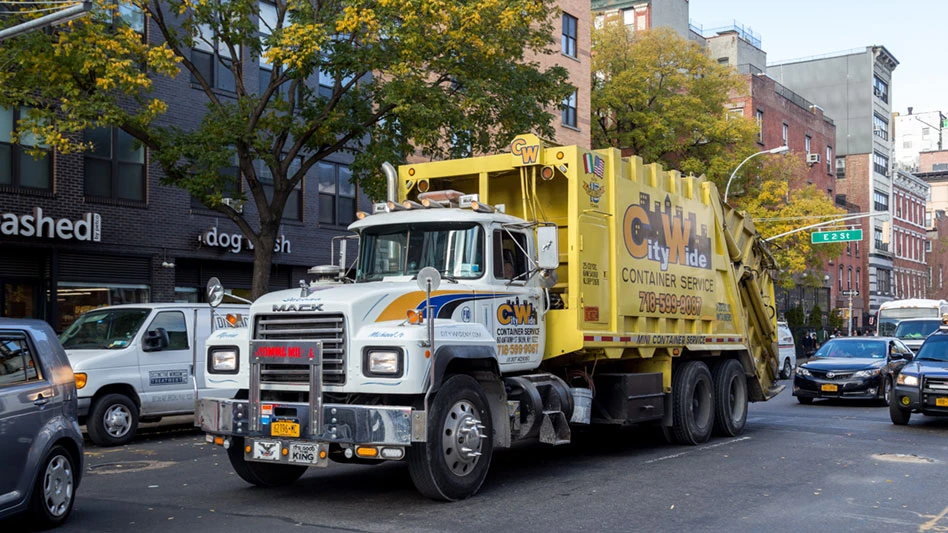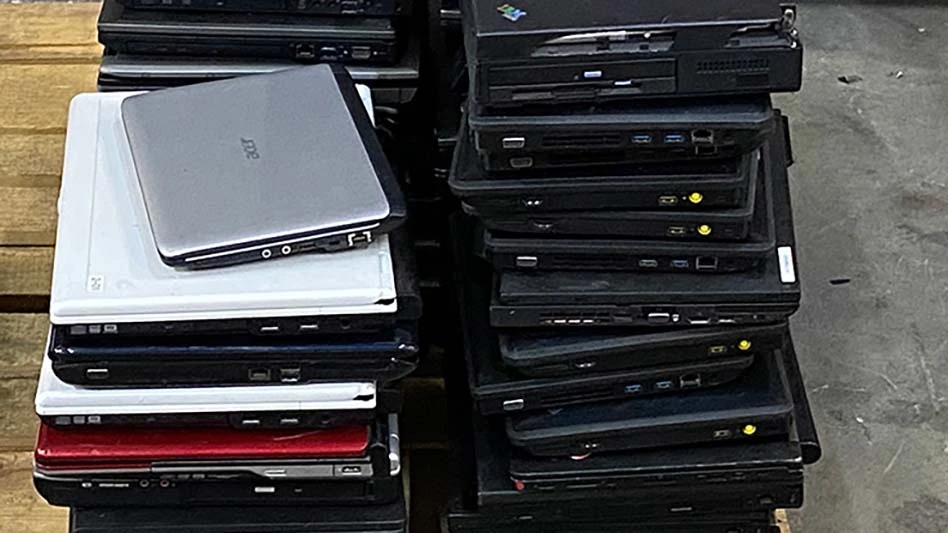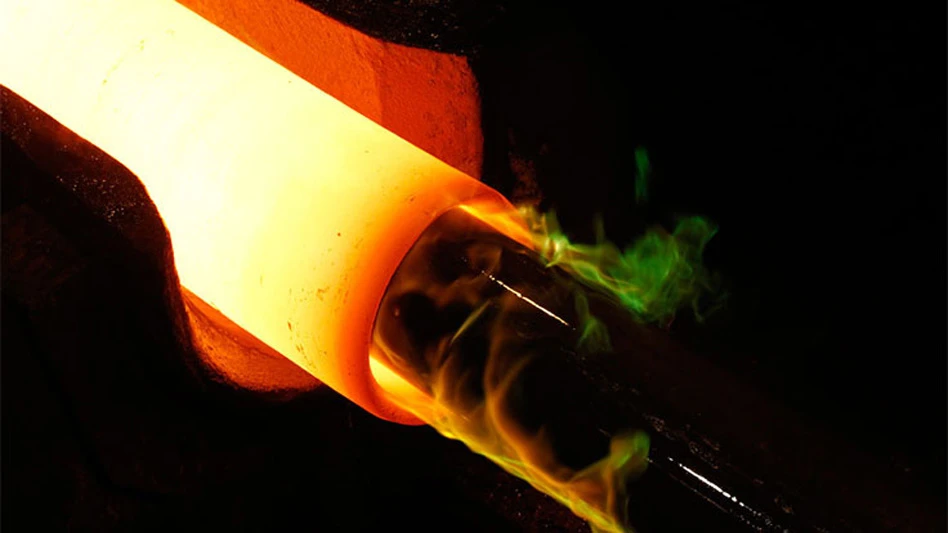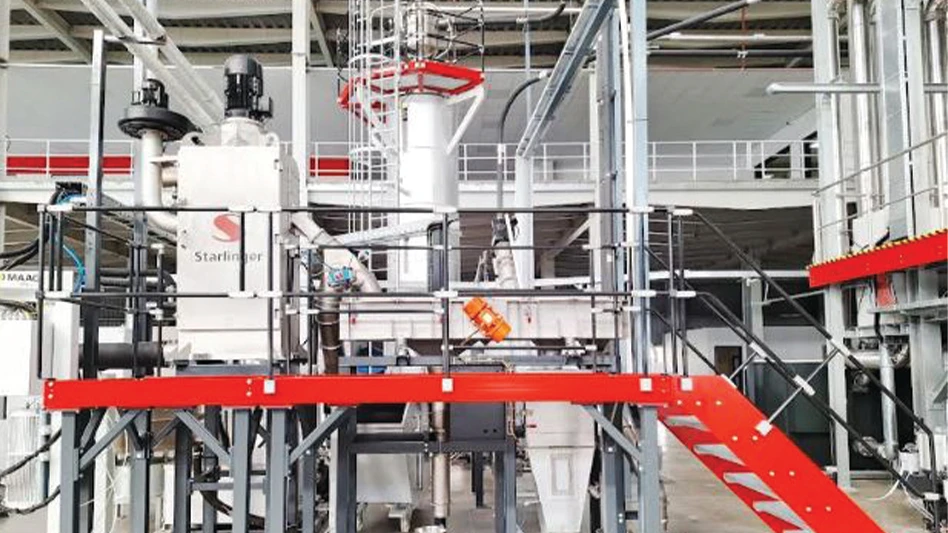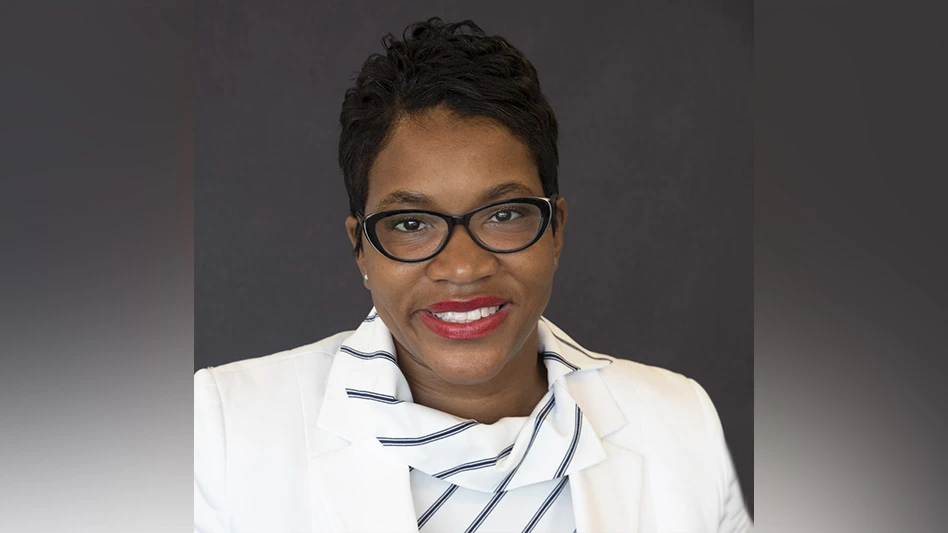
Aunique preprocessing (PreP) facility operated by PureCycle Technologies Inc. of Orlando, Florida, has made a big leap in technology by eliminating all human sorters and delivering polypropylene (PP) bales that are more than 95 percent pure.
The PreP, located in Denver, Pennsylvania, uses high-tech sorting equipment developed by Machinex. It takes in bales of PP already sorted by material recovery facilities (MRFs) that might typically still contain up to 35 percent of non-PP plastic material and other contamination and, after preprocessing, PP bales that are at least 95 percent pure are sent to PureCycle’s advanced recycling facility in Ironton, Ohio.
The 325,500-square-foot PreP site has been operating since last October and is PureCycle’s first such facility.
The challenge for Machinex, based in Plessisville, Quebec, was to apply its technology in a hands-off system to sort 10 tons of PP per hour, its first installation that totally eliminated human sorters.
“We don’t necessarily consider ourselves to be a sorting company, even though that’s kind of what we do,” says Rusty Angel, eastern regional sales manager at Machinex, who oversaw the PureCycle installation. “We’re a technology company, and we use various types of technology to get into the stream and mine out more effectively than we could before.”
How it works
The Machinex system extracts polyethylene terephthalate (PET), high-density polyethylene (HDPE) and ferrous metals, all of which PureCycle can sell to other recyclers. It also eliminates dirt and other contaminants.
According to Angel, once the Machinex equipment was installed, it took one week of operation to reach the targeted capacity of 10 tons per hour, complete calibrations and train operators.
Step 1 is a fully automated dewiring machine from Finnish company Cross Wrap Ltd. that can handle up to five bales at a time. Once the wire is cut and extracted, the material dumps onto a conveyor for transport to a trommel. The trommel’s spinning motion declumps the material, and small particles such as fines or dirt are dropped through 2-inch diameter openings in the trommel.
Next, the material runs past a magnet to remove ferrous materials, then past the first Mach Hyspec optical sorter to separate PP from PET and HDPE.
After the optical sorter, material moves to an eddy current separator to remove aluminum.
Material that is left goes through a second optical sorting process to remove anything that is not PP.
“By positively ejecting PP twice, we are able to give them very high purity,” Angel says, noting that the Machinex system also uses two SamurAI sorting robots. “That’s one way for us to eliminate headcount.”
A pair of two-RAM balers complete the system.
The facility has a total of four Mach Hyspec optical sorters. The sorters use a high-speed, short-wave infrared hyperspectral detection system that can identify a wide range of plastics, plus fiber products, metal, wood and colors.
The SamurAI four-articulation sorting robots can make up to 70 picks per minute, or about double the average picks per minute rate for a human sorter, according to Machinex. The SamurAI uses artificial intelligence to identify distinguishing features in the same way a human eye does. It can recognize dirty and commingled materials.
A Mach Intell intelligence platform is connected to each HySpec sorter and robot. The dashboard provides real-time data about the material stream, including flow composition, volume of each material type, material trends and total material seen by the sorter.
Choosing the right partner
PureCycle buys bales from MRFs in the Northeast U.S., and the company says its solvent-based processing plant in Ironton turns recycled PP into nearly virgin PP and needs recycled material with a higher purity level than MRFs typically provide.
“PureCycle needs bales in the 94 percent to 95 percent range of pure PP,” Angel says. “Their downstream equipment can handle some contamination, but they don’t want to throw 30 percent contamination in there. It reduces the yield of their machines and creates some chemical issues.”

He adds that recyclers that use a mechanical process want bales with nearly the same level of purity, but postconsumer material is more difficult to process without human sorters.
“In a single stream, if you are collecting from someone’s house, it could have [a] garden hose or Christmas lights or other contamination that makes it challenging to process without people to get out those large items,” Angel says, adding that Machinex is working to solve that problem.
Sorting single-stream, residential material is the biggest part of Machinex’s business, but Angel says the expertise it has gained and the equipment it has developed enable it to tackle projects like the PureCycle PreP.
“We have worked with other plastics recycling facilities in the past, but PureCycle is the first one that is 100 percent automated, and they are doing a pretty significant amount of tonnage,” he says. “They have no sorters on the line now.”
If PureCycle relied on only human sorters, it would take an estimated 20-25 people to reach the same volume and purity level the Machinex system is achieving, Angel estimates.
Another project Machinex is working on is separating food-grade PP from nonfood-grade PP by repurposing the second sorter.
“They have different values in the marketplace,” Angel says.
The PureCycle installation is scalable but currently has additional capacity. Angel estimates it could increase its current 10 tons per hour to 11 or 12 tons per hour and maintain the same purity standards.
In its May 7 U.S. Securities and Exchange Commission filing, PureCycle reiterates plans to build additional PrePs in the future and says it has leased a site in central Florida. No timeline for construction has been announced.
Angel said he is pleased that Machinex equipment was selected by PureCycle for the installation.
“We have latched onto the PureCycle vision of using a physical recycling process to turn PP waste back into near-virgin PP,” he says. “They are making a splash. I think they are a bit of a game-changer in what they are doing.”
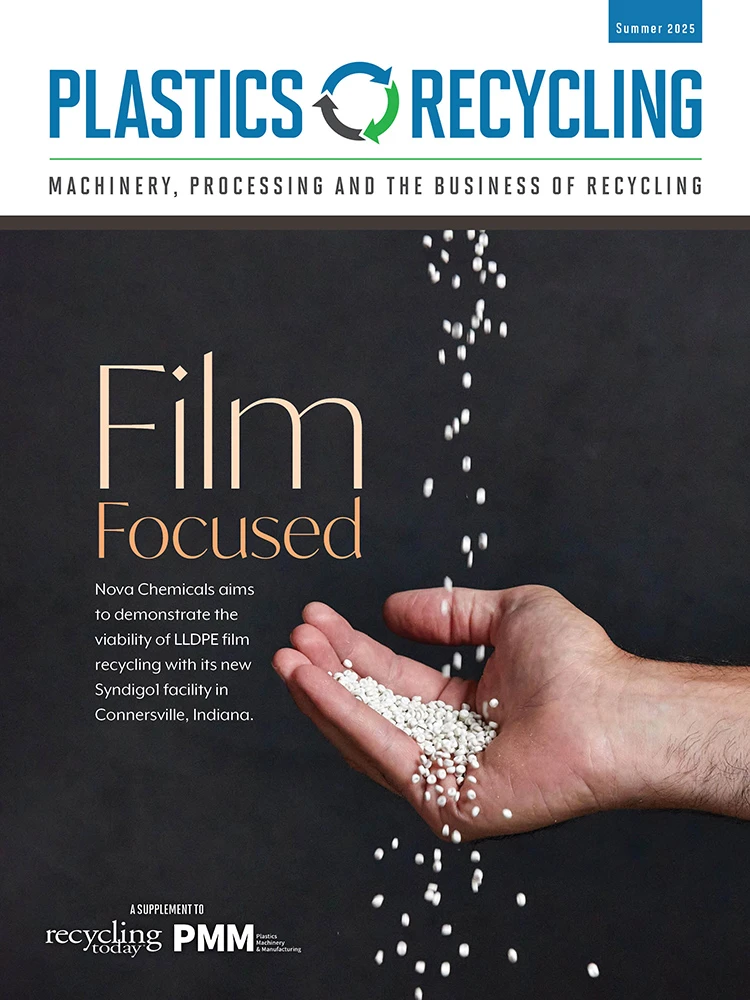
Explore the Summer 2025 Plastics Recycling Issue
Check out more from this issue and find your next story to read.
Latest from Recycling Today
- Alton Steel to cease operations
- Nucor finishes 2025 with 14 percent earnings decline
- Algoma to supply Korean shipbuilder
- Improving fleet maintenance management across multiple locations
- Aimplas project transforms recycled nylon fishing nets
- New Ineos Recycl-In product made with 70 percent recycled content
- Steel Dynamics reports 2025 financial results
- Century Aluminum, EGA partner on new primary aluminum smelter
